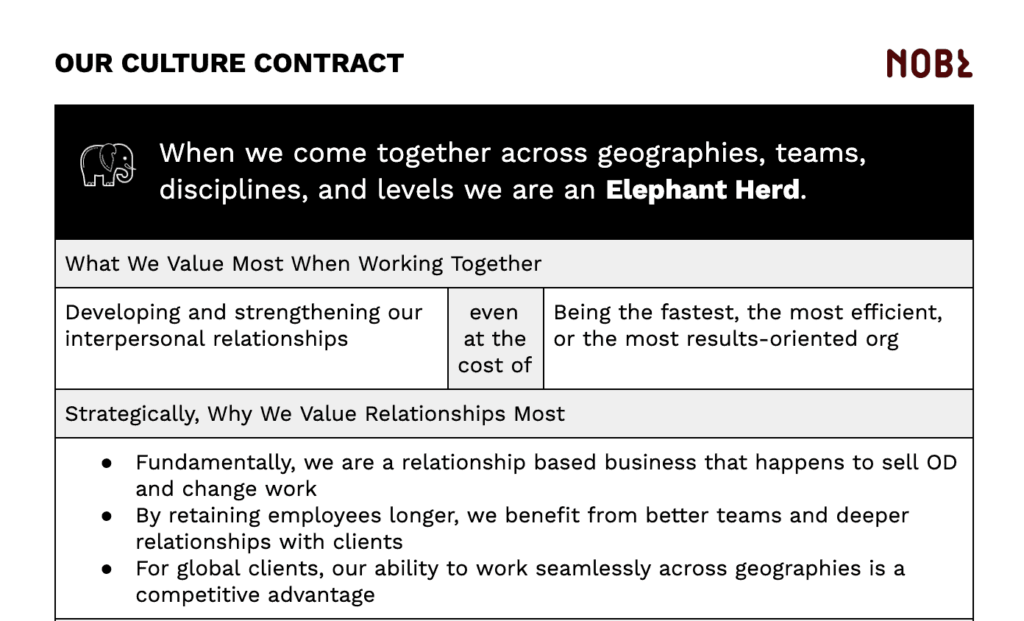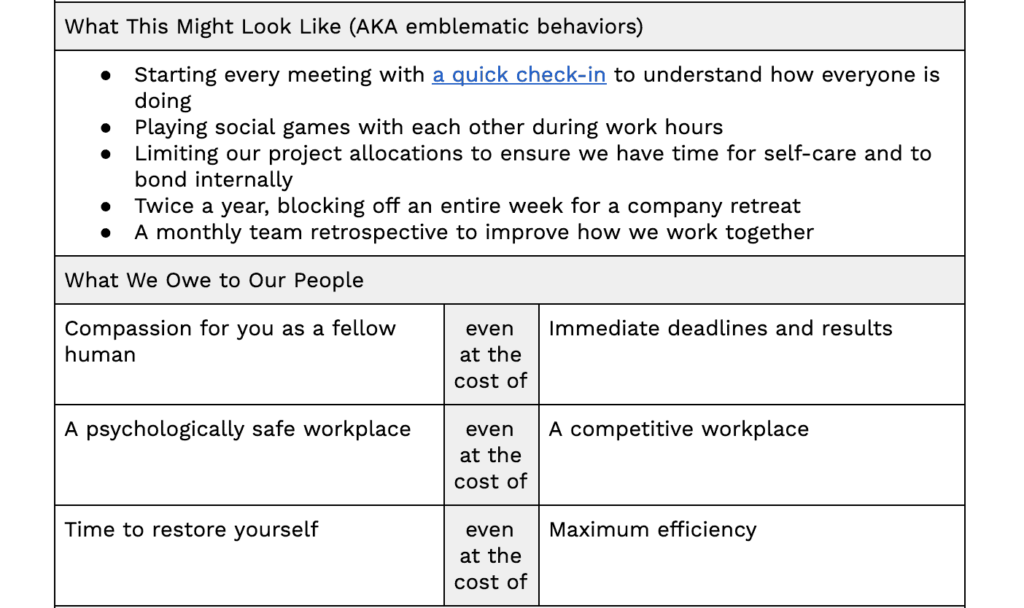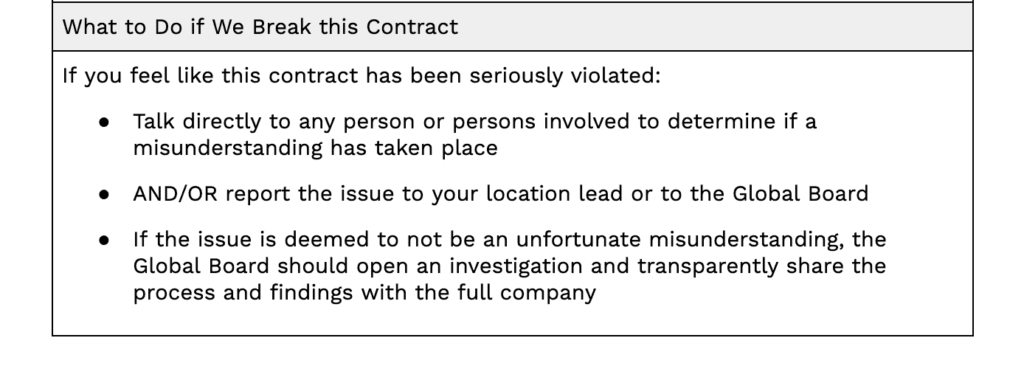Culture is an implicit and shared agreement between everyone at work to behave within a set of boundaries. All too often, though, those boundaries are either ill-defined, or so slippery in definition that we fall back on things like “culture-fit,” which are really tests of homogeneity (or how much we’d like to have a beer with someone).
But what if we explicitly codified the set of boundaries? And added more exacting definition to what we hoped and expected for—and from—each other? In addition—and this is where the true innovation may lie—what if we spelled out, like you would in an anti-harassment policy, the steps an employee should take if they felt like the organization or its people were no longer respecting the culture they set out to build?

To those ends, we’ve developed and tested a Culture Contract. It lays out the behaviors we expect to see if we’re truly upholding our values, why we believe they’re important strategically, and of course, what to do if we’re going off track. We’ve seen too many great companies compromise their founding values (Google’s “don’t be evil” motto comes to mind) as they’ve scaled or struggled.


To be clear—we’re definitely not claiming that we live up to our values all the time. If anything, we’ve come to this Contract through iteration and yes, sometimes (painful) failure. But as a result, we know that these are true values that we live on a daily basis, not just platitudes that we’ve painted on a wall. If you want to create your own Culture Contract, get your team together, download the template, and ask the following:
- Assess what your culture values most when working together. First, think about your team’s strengths—when it comes to how you operate, what’s celebrated and recognized? If you’re not sure, we’ve developed a framework with four different types of organizational culture: Birds (agility), Wolves (results), Bees (process), and Elephants (relationships).
- Figure out what trade-off your team is willing to make. Of course, no advantage comes without some sacrifice: if you’re relationship-oriented, some deadlines may slip; if you’re agile; you may not be the most efficient. Use our “even over” formula to help you think through what’s most important to your team, and add to the “what we value most” section.
- Determine the reasons for this strategic decision. If you’re just focusing on relationships because you want to be “nice,” or stick with process because you’ve always done it that way, you’re more likely to compromise your values under pressure. Instead, connect these values to a clear competitive advantage to help you stay the course.
- Think of how these values are best expressed as behaviors. What is your team already doing that exemplifies what you want your team to be? Get specific: is it how the team rallies after receiving difficult news? Or maybe it’s regularly holding retrospectives to learn and improve?
- Assess what people owe each other. When people join the team, promises are made: about what they’ll deliver to the company, how they’ll be rewarded by the company, and how they should interact with colleagues. Your goal is to make all these promises explicit, so that everyone is aware and aligned. Once again, it helps to form these as “even over” statements—it’s easy to say that you value work-life balance, but how does the team actually act when there’s a looming client deadline?
- Discuss how to hold your team accountable. It can be tempting to jump to holding people accountable through enforcement (“you strayed, now go to HR”). But it’s a lot easier to get people to do something when they want to do it, not when they’re afraid of the consequences. Fear in an organization takes on its own life, and causes all sorts of other issues. Instead of coming up with punishments for breaking the contract, brainstorm potential areas for why the contract may be broken at all, how you’ll mitigate those, how you’ll celebrate when you’re on track, and at what point a 1:1 feedback conversation is needed. Of course, you should have a plan (with HR as a partner) for clear cases beyond repair, like sexual harassment, embezzlement, and so on.
Need help determining whether your team is a Bird Flock or Wolf Pack? Ask us about a 90-minute assessment.













